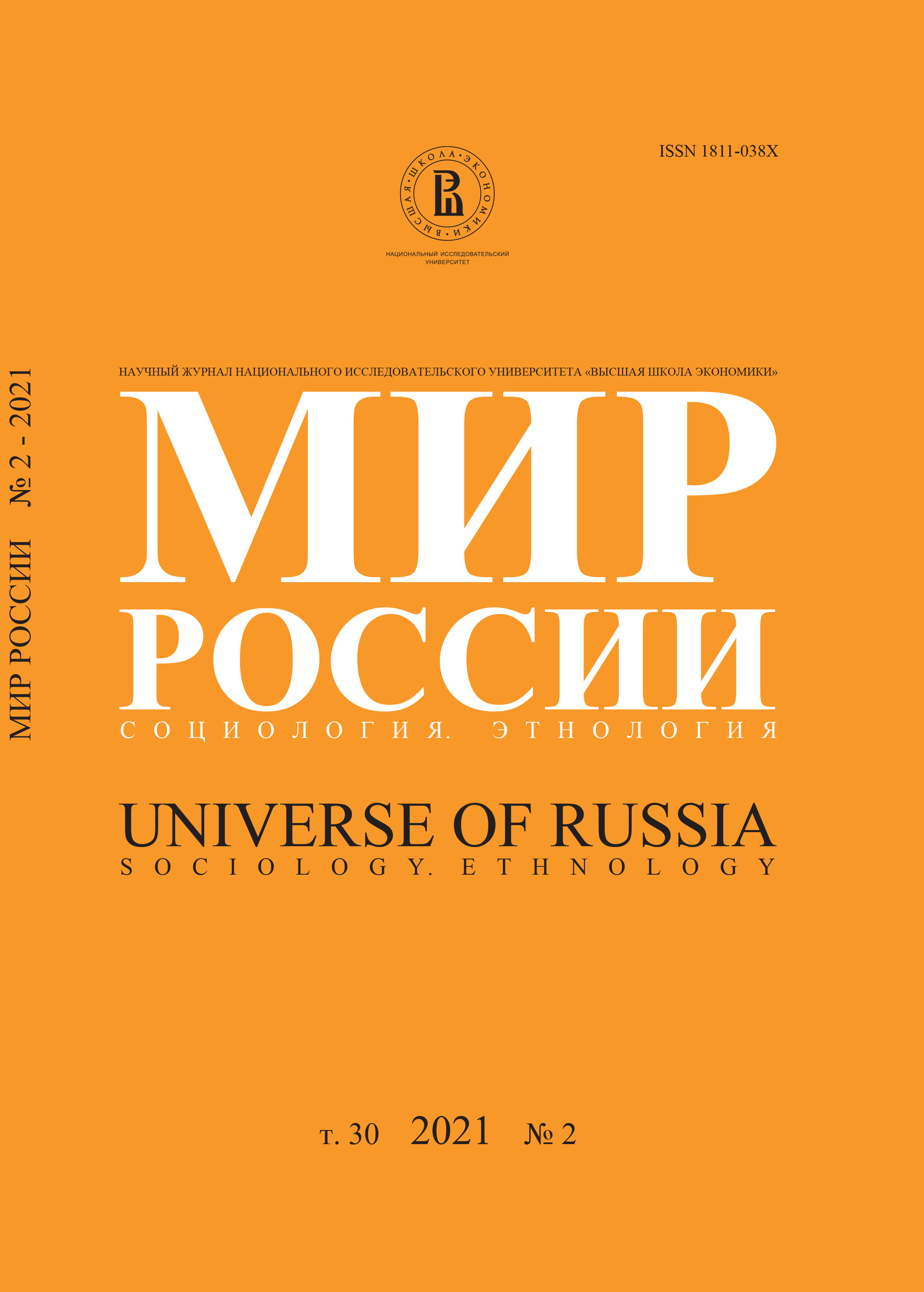The Integration Potential of the Host Society: A Comparative Regional Perspective
Abstract
Based on survey findings from three federal subjects of Russia (Moscow, Khanty-Mansi Autonomous Okrug – Yugra and the Republic of Sakha (Yakutia)) this article analyzes the levels and factors of integration potential of the host population in relation to migrants of other cultures. Using factor analysis, we construct an indicator of the integration potential of the host population. We further identify significant links between a particular level of integration potential and socio-economic, ethnocultural and other variables that characterize the host community. The analysis reveals that the highest integration potential among the studied regions is among the population of Yugra, and the lowest is among the population of Moscow.
We show that integration potential is associated with two levels of factors. The first level consists of factors of ethnic negativism, which we consider as an emergent characteristic rather than as a stable attribute of the host community. This ethnic negativism is not related to the ethnic or religious identity of migrants, but to the perception of their integration into the standards of behavior of the host community. The results for the regions studied confirm that a low level of ethnic negativism accompanies a higher level of integration potential. A special form of ethnic negativism is, in our view, the “capitalization of ethnicity”, i.e., the desire to consider ethnicity as a form of social capital that is converted into preferences for representatives of some ethnic groups and the basis for discrimination against representatives of other ethnic groups. At the second level, the integration potential of the host society is determined by factors related to the characteristics of group identities in the host population. It is revealed that a high level of group identities of the socio-cultural field (Russian national, ethnic, regional) accompanies a higher level of integration potential of the host population. However, in regions of Russia with a long historical interaction of large and comparable ethnic groups, in particular, in the republics of the Russian Federation, high levels of these identities may the lower integration potential of the host population. We attribute this to the current long-term tasks of preserving and developing the ethnocultural heritage, language, basic components of the way of life, etc., which encourages the host community to be more closed.






